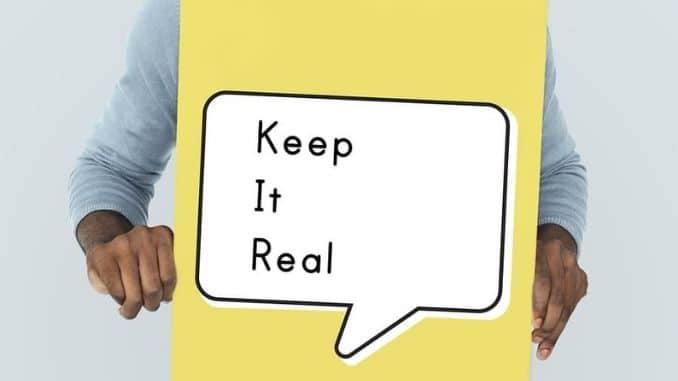
Good communication skills are necessary for creating and maintaining meaningful and fruitful relationships. In our jobs, our marriages, families and friendships, we need to communicate well.
Brian Tracy, the author of “The Power of Effective Communication,” said, “Communication is a skill that you can learn. It’s like riding a bicycle or typing. If you’re willing to work at it, you can rapidly improve the quality of every part of your life.”
Because we know that stellar communication skills aren’t something we’re all born with, we’ve put together a list of 16 solid tips for better communication.

1. Set Aside a Good Time and Place to Communicate
While many important conversations do occur on the go, when it’s possible, it is best to set aside uninterrupted time to communicate. Plan a time to talk when you won’t be interrupted. Also, choose a location that’s conducive to conversation. A busy lunchtime café or a crowded nightclub are spots where you shouldn’t plan to talk about something serious.
If you want to have an important conversation with someone during the day, plan to meet in a quiet park or a meeting room at the local library. For effective communication, it helps to minimize distractions and meet at a time when no one is rushed or preoccupied.
2. Restate What You Hear
A good way to make sure you are listening and understanding another person well is to restate his or her comments neutrally after you hear them. This shows the other person that you’re listening and helps you to make sure you comprehend what was said completely.
Here’s an example:
Person A: “When you took my laptop last week without asking me, it irritated me. I’d like you to be more considerate and ask next time you’d like to use my belongings.”
Person B: “So, you’re saying that it bothered you when I took your computer, and you’d like me to ask first the next time I want to borrow something?”
Person A:” Yes. Thank you for understanding.”
Restating what you hear gives the person you are speaking with the opportunity to refine or correct any misunderstandings right away. It’s a good practice and essential for better communication.
3. Be Honest
Tips for Communicating Better: It’s important that you’re honest in your communications with your loved ones. Saying that you feel one way when you truly feel differently will not help you communicate well in any situation. Leaving out information, exaggerating or pretending are all forms of dishonesty and deception. Commit to a policy of honest communication in all of your dealings.
4. Watch Your Tone
When you’re tired, it’s particularly easy to sound uninterested, bored or preoccupied. Keep your tone in mind when you’re having a conversation. No one wants to have an important talk with Eeyore. When I’m short on sleep, I often have more of a sharp edge to my tone. On those days, I have to maintain a pleasant speaking voice mindfully so that I don’t send the wrong message unintentionally. Do your best to speak in a positive tone during your conversations.
5. Don’t Make Assumptions Based on Body Language
It’s important to pay attention to a person’s body language but be careful not to make assumptions. Often, when a person has his or her arms crossed, it could mean they are simply a little chilly. Reading into someone’s crossed arms could make you think that the person is closed off to new ideas, defensive or maybe upset with you.
My husband has a scar near one of his eyebrows that makes some people think he is scowling when he isn’t. When folks rely on body language to interpret the feelings of others, it can be difficult to translate and is often entirely incorrect.
If someone is putting out some odd vibes nonverbally, ask that person about how he or she is feeling. Don’t assume that your body language readings are accurate until you’ve verified it with the person.
6. Seriously ― Put Your Phone Away
You can’t have an effective, attentive and meaningful conversation with someone while your Facebook app is open, and you’re scrolling through posts intermittently. Make it a point to turn your phone off, put it in your back pocket or, at the very least, turn it over so that it’s face down on the table while you talk with someone. If you want to communicate better, show it by making the person with whom you are communicating your priority at the time.
7. Stay on Topic
Tips for Communicating Better: Particularly in conflict, it’s easy to get off track. When you’re talking to your spouse about how maddening it is when he leaves the toilet seat up, it’s tempting to also mention his dirty socks on the floor or the toothpaste cap that was left off again. However, if you truly want to communicate effectively and get him to understand that this toilet seat business has upset you, stay on the topic. Don’t introduce all sorts of other grievances while you’re at it.
8. Check Your Own Body Language
When you’re communicating with others, be sure you’re not sending the wrong messages. Fidgeting, losing eye contact and yawning can tell the person your speaking with, “I’m bored, and I wish you’d stop talking.”
Keep good posture, lean in a bit, maintain eye contact and be still. These attentive gestures will show that you are genuinely interested in what the other person has to say.
9. Ask Questions
Tips for Communicating Better: When you’re in a conversation, asking questions can help you understand clearly what the other person is saying. It may also help you to stay focused on the speaker and engaged. Think of some thoughtful questions or ask your conversation partner to elaborate a bit. Open-ended inquiries like, “Tell me a little more about your time in San Francisco.” A question like, “If you could go back to that time, what would you do differently?” will encourage the speaker to expound. It also shows that you’re interested and that you care about the topic.
10. Don’t Interrupt
When you’ve got a lot to say, it’s easy to bulldoze over others in conversation accidentally. However important your comments are, interrupting is counterproductive. When a person is interrupted in midsentence, they aren’t ready to listen and will likely not fully tune in to what you’re trying to say. Wait until the person is finished talking and you have the floor before you express your own thoughts.
11. Assume the Best
Tips for Communicating Better: Often in communication with others, we can get on the wrong track by assuming a person is purposefully being hurtful or sarcastic when perhaps they’re not. Similarly, we can take action or inaction the wrong way. You can avoid unnecessary hurt feelings and improve your communication with others if you assume the best of them instead of jumping to negative conclusions.
When we come in with a preconceived idea that the other person has said or done something to wrong us, it can seem accusatory. This kind of presumption will cause defensiveness from the other party and can make communication much more difficult. When you assume the best in people, they are more likely to respond sincerely and without a defensive retort.
12. Minimize Your Emotions
We all have emotions. But when you want to communicate well with others, it’s best to leave your emotions out of it. If you want to talk with your boss about the fact that you haven’t had a raise in three years, going to his or her office in tears will not help you to communicate your point effectively. Rather, waiting a bit, until you are no longer feeling sad, is the way to do it. Splash your face with water and try to stay unemotional during the conversation.
You can even talk about your feelings without getting emotional. For instance, if your spouse forgot to give you a card for your birthday, you can express that to him or her without angrily throwing a ceramic dish against the wall and screaming. If you put your emotions aside, you can communicate the offense clearly, express how it made you feel and deal with the situation.
13. Let Go of the Desire to Be Right
Many times, we argue because we want to be right. If you’re willing to let go of the desire to have the upper hand and be declared the winner, you’ll find that communication is so much easier and more edifying to your relationships.
When you find yourself in a self-righteous cycle, defending your ideas, feelings, and suppositions to the death, remind yourself that the goal is reconciliation and peaceful interaction. Lay down your sword and let go. Giving up the win will help you communicate better.
14. Be Friendly
Tips for Communicating Better: There’s an adage that tells us that we can catch more flies with honey than with vinegar. This statement is especially true when trying to improve your communication with others. If you supervise employees and you speak harshly or unkindly to them, it’s difficult to get them to listen to you and implement your advice. However, if you deliver the same admonition with a smile and a pat on the shoulder, it’s often well received.
Friendliness is helpful in all types of communication. When you’re dealing with your children, your coworkers, family members or a cashier, it’s better to deliver your message with kindness. The goal of good communication is a better relationship.
15. Be Open to New Ideas
When we’ve already got things all figured out, we often don’t fully listen and consider the ideas of others. Be open to new suggestions and seeing things through a different lens. Even if you know you’ve got the answer, give a little room for others to chime in with original ideas. When people feel that they’ve been heard and acknowledged, they are more likely to also listen to your view.
16. Be Mindful of Opportunities to Improve
Particularly with people with whom you communicate with regularly, look for ways you can improve your skills. If your wife seemed uncomfortable when you brought up an emotional topic about her family, reflect on ways you can be more sensitive in your tone. If every interaction with your teenager seemingly results in an argument, consider ways that you can alter your approach and control your emotions. Even the most effective communicators look for ways to improve.
Communicate Better
Make it a priority to use excellent communication skills in all your dealings. You can improve your relationships and interactions with others by implementing these tips for better communication.
For your guide to the best foods to slim down, check out The Best Foods that Rapidly Slim & Heal in 7 Days, here!







